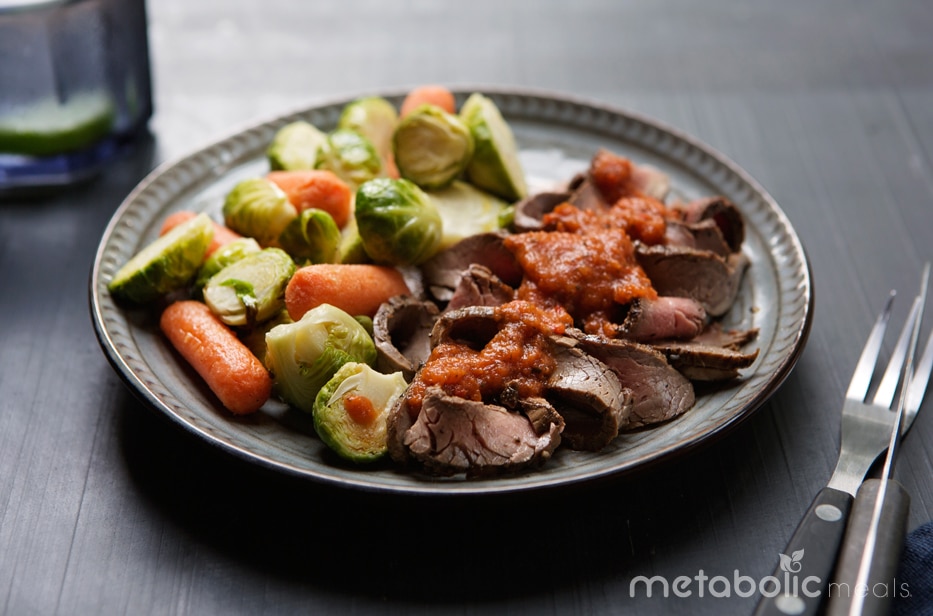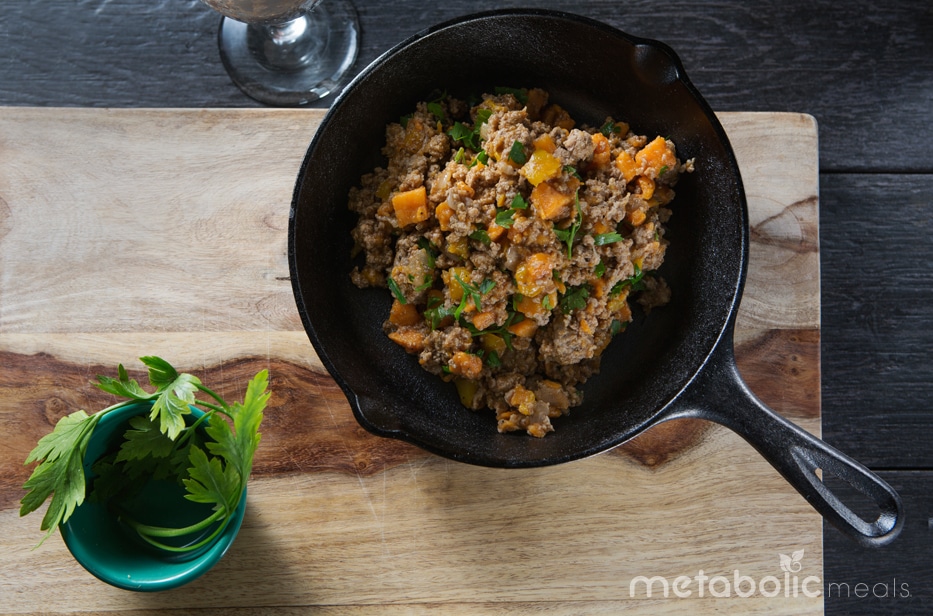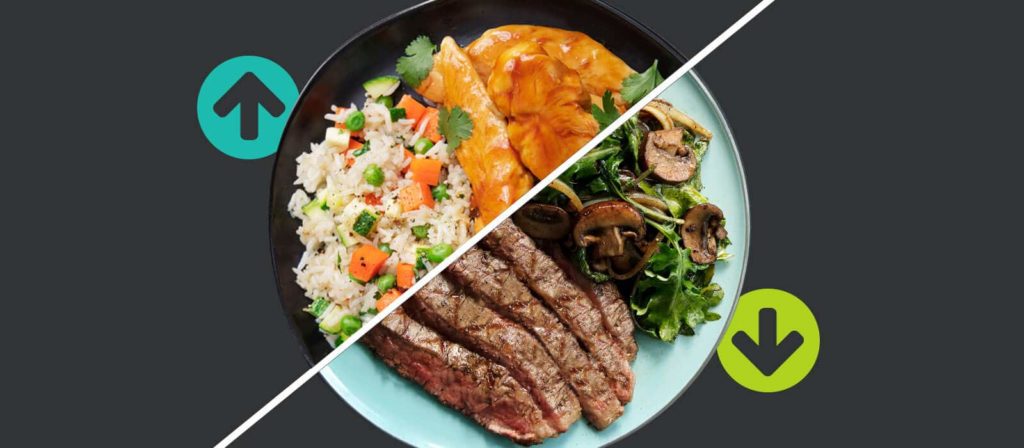Variety isn’t just the spice of life; it’s also the key to maintaining a healthy lifestyle. Having a bunch of versatile, nutritionally balanced meals ready to go makes it much more likely you’ll actually stick to your healthy eating plan — and you’ll look forward to your next meal.
Many people approach healthy eating with a short-term mindset. Sure, it’s tempting to try an extreme diet to drop a few pounds or add muscle quickly, but that approach sets you up for failure. If you drastically lower your caloric intake and eat the same three or four meals until you dropped that last 20 pounds, for example, you’re setting yourself up for long-term failure. After reaching your goal, just the thought of eating one more piece of chicken or broccoli is probably enough to send you right back to your old eating habits.
Getting creative and rotating healthful ingredients is a much more effective way to not just lose weight, but to maintain a healthy lifestyle. There are many quality proteins, seasonal vegetables, spices, and cooking methods that can keep you satisfied and looking forward to your next meal.
About 60 percent of the calories an average American eats daily come from processed foods; don’t risk your health by joining that stat. I’ve found that average North Americans rotate between just 12 to 18 foods throughout their lifetimes — making these people prone to food sensitivities, allergies, and nutrient deficiencies. Here are three ways to stick to your healthy eating goals without getting bored:
1. Rotate ingredients

By eating a healthful mix of foods, you lower your chances of missing key nutrients and the risk of breaking your diet out of boredom. A variety of food ups the diversity of the good bacteria in your digestive system, which can play a key role in maintaining a healthy weight and improving immune function. If you’re dreading eating the same thing for the fifth day in a row, you’re much more likely to pick up that bag of chips. Try meals like our grass-fed burger with half an avocado, or a cilantro grilled chicken breast with quinoa and black bean pilaf. You’ll find it hard to be bored by your diet when it tastes great and changes frequently.
One of the biggest benefits of food rotation is one you won’t hear about from your family physician. Rotating the foods in your diet drastically lowers your chances of developing food allergies and sensitivities. I’ve seen this firsthand: One of the first things I used to do with the athletes I trained was give them a food allergy panel and compare the results with their nutrition log.
What I generally saw was that the food sensitivities showing up in their food panel — chicken, cashews, and broccoli, for example — would be the same things they were eating almost daily. One of the first things you should do when trying to eliminate a food allergy or sensitivity is eliminate the food from your diet for a while and be better about rotating your food more often.
2. Give your metabolism a workout.

Substantial research has been done on cycling carbohydrate sources like potatoes, rice, and fruit in and out of one’s diet. By eating a healthy variety of low-carb meals with a protein, vegetables, and healthy fats 70 to 80 percent of the time, then switching to meals of proteins and carbohydrates the other 20 to 30 percent of the time, you’re helping your body become more flexible with regard to how it fuels you.
As long as you’re balancing your carb cycling pattern with the appropriate workouts, this method will easily help you with weight loss and fitness goals. And you’ll be able to efficiently use both glycogen and fat for fuel due to positive hormonal shifts and an increase in insulin sensitivity.
Through a little trial and error, you can find the ideal amount and frequency of carbs to add to your diet. A lean, active individual may feel best eating 200 grams of carbs every other day, while a more sedentary person looking to lose some body fat may find it best to eat 100g of carbs every third day. Your energy levels and body composition will let you know whether you’re on the right path — it’s a very individual process.
3. Make a sustainable goal.

Don’t plateau before reaching your goal: Make sure you set yourself up for success by planning something you’ll actually stick to. If you’re eating the same foods and staying at a low caloric set point every day for weeks, you’ll actually end up slowing your metabolic rate.
In addition to having obvious psychological benefits, consuming a variety of healthful foods will encourage the consistency needed to see real results from your diet and health improvements that will last. It will also deter you from yoyo dieting due to noncompliance. Easy meals with outstanding health benefits like free-range turkey with a sweet potato skillet or wild-caught salmon on kale or spinach will encourage you to stick to your health goals.
Imagine actually looking forward to your next healthful meal without daydreaming about having pizza instead. It’s possible! By keeping your meal plans diverse, you’ll actually be excited about your commitment to a healthy lifestyle. That’s when your results become long-lasting.






